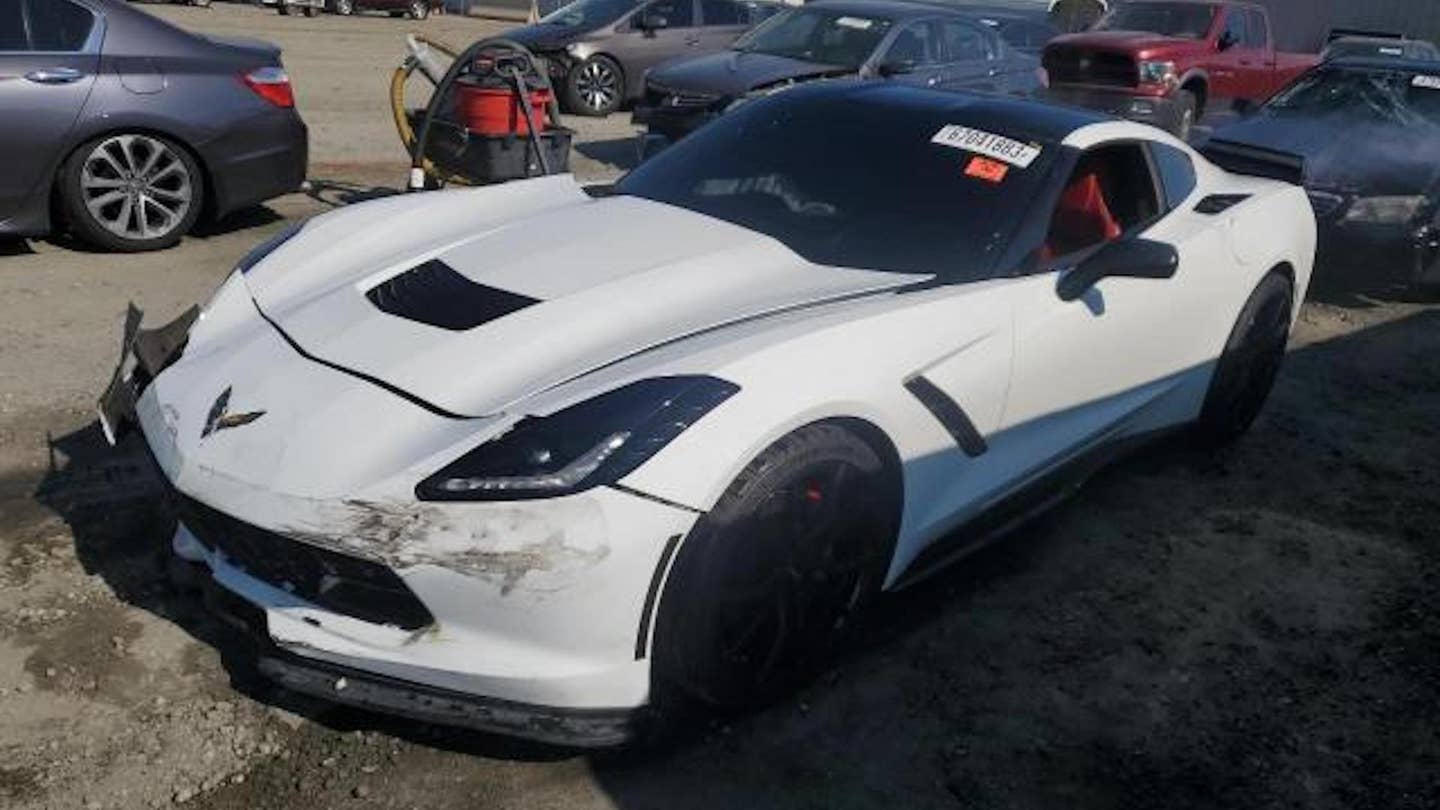Having a rebuilt title doesn’t necessarily mean the vehicle has been fixed, but it could be a way for you to get a deal on a used car.

We may earn revenue from the products available on this page and participate in affiliate programs. Learn more ›
While shopping for your next vehicle, you may have spotted a car that looked like a deal but gave you pause with its rebuilt title. It sounds suspicious—rebuilt from what? That’s the right attitude to have because figuring out why the car had to be fixed (or if it really was at all) will tell you whether you’ve found a deal… or something that shouldn’t be on the road.
Let’s start from square one: Every vehicle has a title, a government document specifying an owner, which starts off as “clean.” That usually means there’s nothing to worry about, but it’s still worth performing an NICB VIN check. But if a car has been totaled by insurance, meaning it was damaged and deemed too expensive to repair, then it gets a salvage title. And that’s the first step toward a rebuilt title.
Example of an Oregon salvage title. Oregon.gov
A salvage title can be assigned for a variety of reasons, all of them suggesting serious damage or defects. The vehicle might have been crashed, had its odometer rolled back, or been subject to a lemon law buyback. Maybe it took hail damage, had a big fire, or even got flooded. No matter the reason, the car was branded as salvage because its insurer decided it wasn’t economical to fix. Salvage titled vehicles are usually good for parts and not a lot else.
But sometimes, repairs will be conducted anyway, and the owner can apply for a rebuilt title to indicate the difference. Some states will require an inspection before approving a rebuilt title, while others don’t. Sometimes, shady sellers will “title wash” their vehicles by transferring it to a state with lax rules, get a rebuilt or clean title, then bring it back for resale.
That’s why it’s always worth performing a vehicle history check so you can see if a car was ever marked as salvage in another state. (They can turn up other issues, too.) It’s up to you to investigate that yourself, starting with a VIN check, and by asking for paperwork documenting the repairs. If possible, it’s also worth taking the car to a trusted mechanic for a pre-purchase inspection.
A mechanic inspects the underside of a vehicle. Beef Stock on YouTube
If everything checks out, a rebuilt title can be the key to getting a deal on your next car. If you’re buying a work truck that’s been through a hailstorm, so it’s pockmarked like a golf ball but in mechanically good shape, that’s a green flag.
In other cases, though, like with some kinds of crash damage or flooding, it may not be worth the risk. You could end up with an unsafe car that’s not worth the discount, and that’s before the problems you might face down the road. Some insurers won’t issue policies for rebuilt vehicles, while resale value could be just as big a problem for you as it was for the last owner. Flood cars and lemon law buybacks in particular are risky, as they may have complex problems that are hard to diagnose and expensive to fix.
At the end of the day, there’s no hard and fast rule about whether rebuilt titles are good or bad. They require you to do extra homework to avoid trouble, and if that or the anxiety isn’t worthwhile, you can give cars with rebuilt titles a pass. But if you’re confident you can suss out a safe buy, it might save you thousands of dollars, and it’s hard to say no to that in today’s economy.


